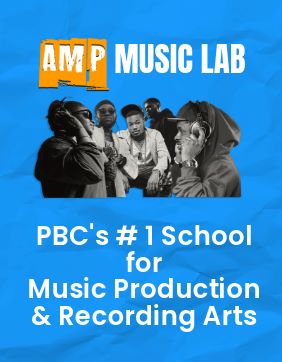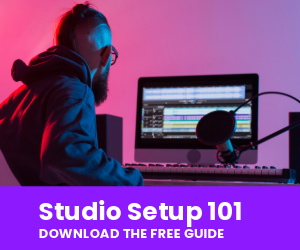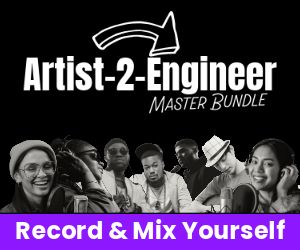
The history of recording arts is marked by significant milestones in technology that have revolutionized the way we capture, manipulate, and reproduce sound. These breakthroughs have not only transformed the recording process itself but have also paved the way for entirely new possibilities in music production.
The Phonograph (1877)
Thomas Edison’s invention of the phonograph in 1877 marked the birth of sound recording. It utilized a rotating cylinder covered with a tinfoil sheet, allowing for the mechanical recording and playback of sound.

Magnetic Tape (1930s)
The introduction of magnetic tape in the 1930s revolutionized recording by providing a more efficient and high-fidelity medium. Magnetic tape allowed for the first time the editing and splicing of recorded audio, giving birth to a new era of studio creativity.
Multitrack Recording (1955)
The advent of multitrack recording in 1955 by engineer Les Paul and Ampex Corporation enabled the separate recording of multiple tracks on the same tape. This innovation laid the foundation for layering instruments and experimenting with different elements in the studio.
Stereo Sound (1957)
The widespread adoption of stereo recording in the late 1950s added a new dimension to music production. Stereo offered a more immersive listening experience, allowing artists to spatially position instruments and create a sense of depth in their recordings.
If you’re looking to build your own recording studio and learn how to record yourself at home with DAW software, now is the perfect time.

Compact Cassette (1963)
The introduction of the compact cassette by Philips in 1963 brought recording capabilities to a portable format. This democratized the recording process, allowing musicians to create demos and share music more easily.
Digital Audio (1970s)
The 1970s saw the first commercial digital audio recording systems, such as the Soundstream system. This laid the groundwork for the eventual shift from analog to digital recording.
Compact Disc (CD) (1982)
The launch of the Compact Disc (CD) in 1982 by Sony and Philips marked a major milestone in audio reproduction. CDs provided a digital format with pristine sound quality and durability, replacing vinyl records and cassette tapes.
Digital Audio Workstations (DAWs) (1980s – 1990s)
The development of Digital Audio Workstations (DAWs) in the 1980s and 1990s, including software like Pro Tools and Cubase, transformed the recording process. DAWs offered unprecedented control over editing, mixing, and arranging in the digital domain.
Times Have Never Been Better for Home Recording
If you’re looking to build your own recording studio and learn how to record yourself at home with DAW software, now is the perfect time. With audio programs and editors like Audacity, FL Studio, Logic Pro X, Cubase, and Adobe Audition, you can easily build a home studio and record, mix, and master your original music. Not to mention the numerous free DAW software options available now to get started (see my free guide on the 13 best free DAW software).
Moreover, there are more ways now than ever to learn music production online. The number of music production schools near you has increased significantly over the last decade. With all these tools and online music production courses at our disposal, let’s take a moment to consider how we got here and where we came from as it pertains to music-making software. After all, how will we know where we’re going if we don’t know where we came from?

Unlock Your Full Potential with Personalized Music Production Training
Ready to take your music production skills to the next level? With AMP Music Lab’s private lessons, you’ll receive one-on-one coaching tailored to your unique needs and goals. Whether you’re just starting out or looking to refine your techniques, our expert instructors are here to guide you every step of the way.
Why Choose AMP Music Lab Private Lessons?
- Personalized Instruction: Customized lessons to fit your learning style and pace.
- Expert Guidance: Learn from industry professionals with years of experience.
- Flexible Scheduling: Book lessons at times that work best for you.
- Comprehensive Curriculum: Covers all aspects of music production, from songwriting to mastering.
Get Started Today!
Don’t wait to achieve your music production dreams. Sign up for our private lessons and start creating radio-ready music in your home studio. With AMP Music Lab, you’ll gain the skills and confidence to take your music to the next level.
Sign Up Now Book your private lesson today and begin your journey to becoming a skilled music producer. Unlock your potential with AMP Music Lab and let’s make great music together!
Have Questions? Contact us at amp.team@ampmusiclab.com or schedule a call for more information.














